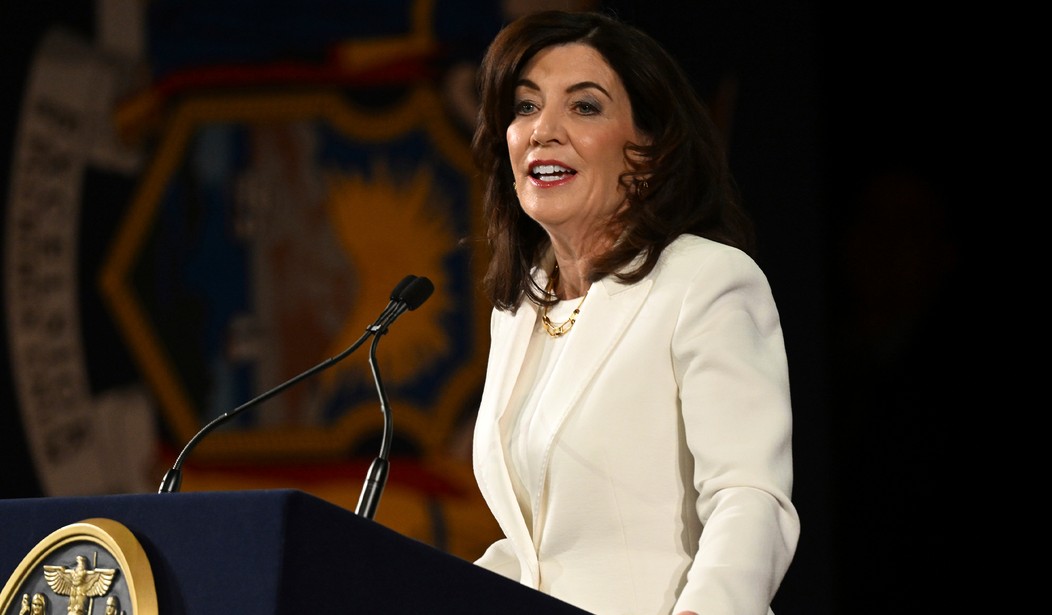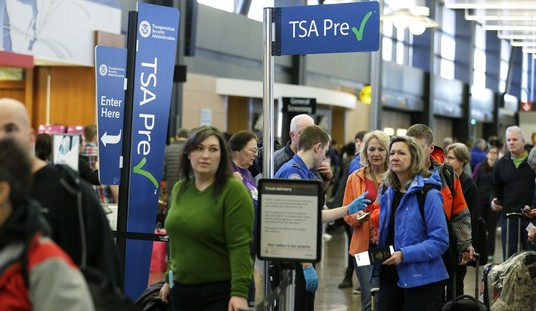Following California's lead, New York Gov. Kathy Hochul on Tuesday signed legislation establishing a commission to study reparations and racial justice.
“Today, we are continuing our efforts to right the wrongs of the past by acknowledging the painful legacy of slavery in New York,” Hochul said. “We have a moral obligation to reckon with all parts of our shared history as New Yorkers, and this commission marks a critical step forward in these efforts.”
The commission will have nine members chosen by the governor, state assembly speaker, and the state Senate majority leader based on their expertise, education, or experience.
"Here in New York, there was a slave market where people bought and sold other human beings with callous disregard," Hochul said. "It happened right on Wall Street for more than a century. And even though it officially closed when slavery was abolished in New York in 1827, our state still remained a dominant player in the illegal slave trade. The practice continued, and our financial and business institutions prospered."
Hochul said before the American Revolution, New York City had the second-highest slave population after Charleston.
“The population of enslaved Africans accounted for 20 percent of New York’s population, while 40 percent of colonial New York household owned enslaved Africans,” she added. “This was an integral part of the development of the State of New York, and the consequences of the institution of slavery – and subsequently, discrimination and systemic racism borne of that institution – can still be observed today.”
According to public opinion surveys, about two-thirds of Americans oppose the idea of reparations - a point Hochul appeared to address while making the case that even immigrants who came after the practice ended are still responsible for reparations.
Recommended
"I think of the immigrants and the children of immigrants who've come here since the end of slavery," the governor said. "They will say, 'We had no involvement in slavery ... None of our relatives were slave owners.' And there's part of me that worries about leaping into this conversation because of the racial divisions, strife it could sow."
But, she argued, those people came to America in search of a better life, whereas the enslaved "came in bondage to live a nightmare."
"[W]e have to ask, do those of us whose family came here to pursue a dream not have a role to play in ending a nightmare? Yes, yes we do."
Gov. Kathy Hochul (D-NY) ahead of signing legislation creating a board to study reparations for residents of African descent:
— The Recount (@therecount) December 19, 2023
“In New York, we like to think we're on the right side of this … What is hard to embrace is the fact that our state also flourished from that slavery.” pic.twitter.com/fNFVE34si9
The commission has been tasked with examining the legacy of slavery in the state, the discrimination African Americans have faced since then, and how those effects continue to impact the community to this day. Various forms of reparations will be studied to determine how past wrongs can be addressed.
The New York Post's editorial board blasted Hochul for the political stunt.
"[T]his committee is bound to come up with some astronomical number to compensate for historical racism, which will infuriate white residents who don’t agree with collective punishment for actions they were not a part of — not to mention other ethnic groups that have their own grievances," they wrote.
"And then, just as in California, the governor will be forced to admit that New York can’t afford to spend billions in reparations, which will embitter black residents who were falsely promised a payout," the editors concluded.
"So congratulations, Gov — you’ve set back race relations for no good reason except a political stunt."
























Join the conversation as a VIP Member